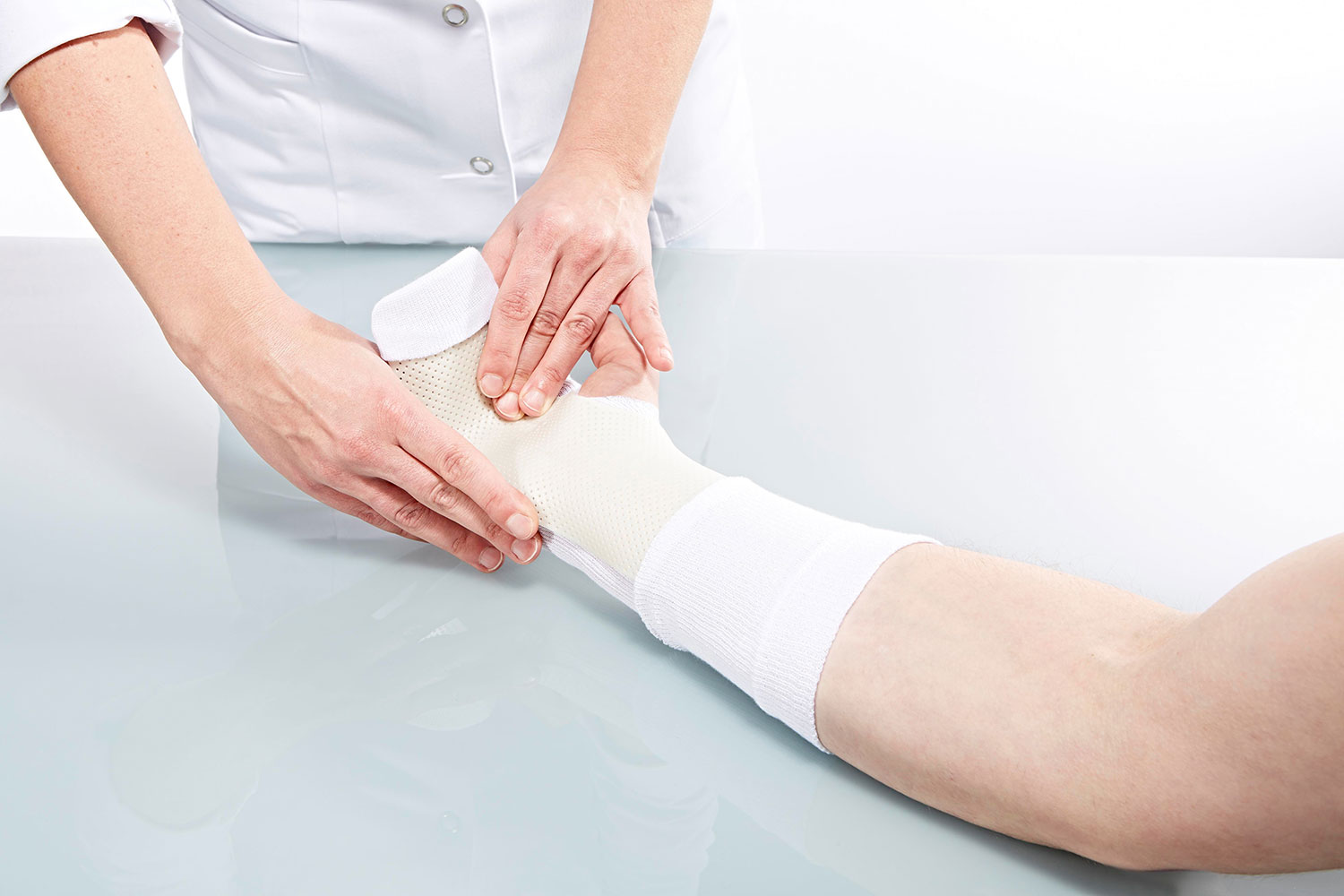
Made from bio-based polylactic acid (PLA) plastic, this innovative splint for immobilizing bone fractures can be reshaped repeatedly throughout treatment, for example, when swelling subsides. The splint can be composted after treatment.
Up to 1.5 million fractures need to be immobilized every year in Germany. And there are likely two to four times as many mobilizations for other reasons that are not statistically recorded such as infections, strains and sprains. Conventional mobilization methods are usually uncomfortable, heavy, prone to odor, difficult to apply and energy-intensive, and the shape cannot be changed later on. Because they are not biodegradable, they also generate up to 150 metric tons of waste each year.
The Fraunhofer Institute for Applied Polymer Research IAP in Potsdam-Golm developed the innovative RECAST splints in collaboration with Nölle Kunststofftechnik GmbH. The researchers optimized the bio-based, biodegradable PLA plastic used in the splints, allowing it to be shaped and easily adapted to the body when heated to 55 to 65°C.
“The material had to meet a whole host of requirements. For example, it needed to remain malleable for 30 seconds to three minutes at most and then harden and stabilize at body temperature. It also needed to enable repeated shape adjustment,” explains Helmut Remde, head of the Processing Technology Center at Fraunhofer IAP. The research team chose PLA as the base polymer, combined it with suitable fillers and developed a formula that meets all of the requirements. In addition, they ensured that the material can also be produced in industry-relevant quantities.
PLA offers another decisive benefit: it is biodegradable. While the majority of common immobilizing solutions generate large amounts of plastic waste, which is incinerated and disposed of in landfills, RECAST splints can be biologically degraded in industrial composters.